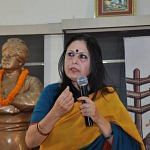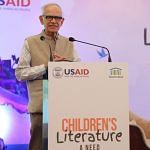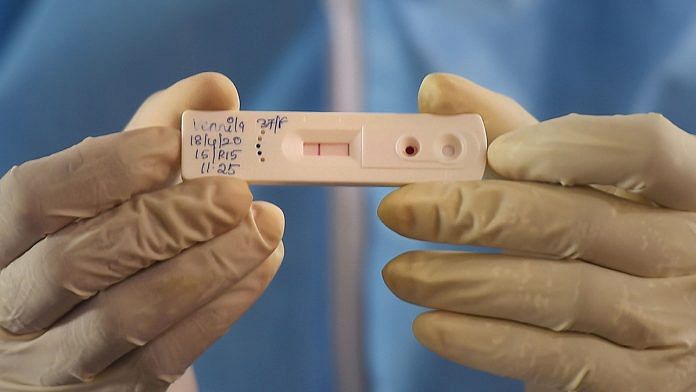 Post lockdown, India’s economy should not lapse into ‘permit raj’
Post lockdown, India’s economy should not lapse into ‘permit raj’
Kaushik Basu | C. Marks Professor at Cornell University & former Chief Economist and Senior Vice President, World Bank
The Indian Express
Basu writes on the aftermath of the national lockdown when businesses will start to open and the informal sector, small industries will have to operate, while ensuring social distancing, masks and hand-washing. He argues that we must begin to facilitate measures for the poor to reach their workplaces. The rules of behaviour have to continue by “participation” and not by bureaucratic “permission” even though India has a long history of the “permit raj” and this has been a setback for India’s economic growth for long, he adds.
 Going back to a new school
Going back to a new school
Ameeta Mulla Wattal | Principal, Springdales School, Pusa Road, New Delhi
The Indian Express
Wattal notes that even after the lockdown comes to an end, it is difficult to predict when schools will start. She writes that schooling is “diametrically opposed to social distancing” as it is supposed to look after the emotional, social and behavioural health of children. Wattal argues that the post-pandemic world will require a “huge shift in mindset, both social and emotional” and a new approach for online teaching. Wattal says that the pandemic has “truly reiterated the much clichéd skills of the 21st century: Decision making, problem solving, ability to innovate and, most importantly, adaptability”.

 A blueprint for a testing strategy
A blueprint for a testing strategy
Jishnu Das | Teaches at Georgetown University
Neelanjan Sircar | Teaches at Ashoka University
 Partha Mukhopadhyay | Works at the Centre for Policy Research
Partha Mukhopadhyay | Works at the Centre for Policy Research
Hindustan Times
The authors comment on effective testing strategies to battle the coronavirus pandemic. They note that efficient testing strategies are required for two key goals — finding infected people to prevent further transmission and generating data to implement a smart containment plan. They argue that while testing in hotspots can be informative, it is also important to focus on those cases that are asymptomatic. They highlight three ways of doing this — test asymptomatic individuals who can become “super-spreaders”, i.e people like health workers and the police; two, do risk stratification of areas and three, states should release this data along with test results.
 To tackle the corona crisis, enable and bring together innovative research on a common intellectual property platform
To tackle the corona crisis, enable and bring together innovative research on a common intellectual property platform
Pratibha M. Singh | Delhi High Court
The Times of India
With several new research and technological developments such as new kits, ventilators, etc, intellectual property (IP) takes centre stage. Singh asks if the world can “afford” an IP war when humanity is facing one of its biggest crises. Singh says that while ‘‘Patent pools” are recognised methods of sharing IP, it is necessary to create a public platform for all stakeholders, enable researchers to file for patents by granting exemptions from payment of official fees, make information available in areas of on-going research without compromising IP.
 The village is still relevant
The village is still relevant
Krishna Kumar | Former Director of NCERT
The Hindu
Kumar writes that even though debates over the nature of India’s rural society are no longer relevant, the village still is, at least for the urban workers. Kumar states that “while the problem of defining a village in an academic sense has ceased to matter, its existential reality has asserted itself, and we need to recognise this assertion”. He argues that when the “assertion” is recognised, one might notice problems in policies that don’t acknowledge the right of villages to flourish with their own “distinctive future”. Initiatives for developing health and education systems in villages, will make both cities and villages sustainable, and will enable them to cope with crises.

 The corner office view in the time of a pandemic
The corner office view in the time of a pandemic
Nikhil Prasad Ojha and Gaurav Nayyar | Partners, Bain & Co.
Sujay Subrahmanyan | Manager, Bain & Co.
Mint
The authors share findings of an online survey of 70 Indian business leaders conducted by Bain and Co., which revealed that most had suspected a lockdown extension beyond April and three out of four expect the Covid-19 crisis to last till July. Those from heavy industry sectors think the crisis will last till November, but in general, 70 per cent of the leaders feel that there will be a recovery by the end of 2020 or after March 2021. Most are now concerned with an anticipated drop in customer demand and employee morale. In lockdown mode, e-commerce has emerged as the new “mantra”, with many “rethinking digital to holistically connect with customers”.
No place in a city that migrants can call ‘home’
Narendar Pani | Professor at the School of Social Science, National Institute of Advanced Studies, Bengaluru
The Hindu Business Line
Pani argues that the millions of migrants uprooted because of the Covid-19 crisis reveals the “fragility of India’s urbanisation”. He writes that in the post-liberalisation era, there has been a preoccupation with growth but issues like housing for workers have been ignored by state policy. Better paid workers find upper-end housing far from their workplace, while low-wage workers make do with what they can manage, sometimes cramming into a room with seven or more people. There is a low chance of their families moving in with them in this scenario that is why families stay back in villages, which remain home. Thus, faced with life-threatening diseases such as Covid-19, the natural immediate response is to return home.
Why it may be a long haul
Omkar Goswami | Chairman, CERG Advisory Private Limited
Business Standard
Goswami argues that a plotted graph for the lifetime of any pandemic takes the shape of an elongated “S” curve, which is initially flat, but after crossing 100 cumulative cases it invariably rises at an increasing rate, then at a diminishing rate and eventually flattens out. This can be seen in the case of South Korea with Covid-19 and also other wealthy OECD countries like Italy, Spain, UK and the US are much worse off. In India, we are far from reaching the falling or flattening state. With the number of people living in slums in urban India, cases will increase for at least 45-60 days. We will have to see how to ensure the unlocking will not create further spikes, and how to deal with the reverse migration when construction and manufacturing services do open up.
Today’s Editorials
The Indian Express: The daily comments that the crashing oil prices may have created economic havoc but there are ways to make the best of a bad deal. Companies and nations with reservoirs could get paid to take care of the surplus, it notes. Hoarding is an option for an individual too, but the money saved from fuel could also be invested in a “conversational lubricant” (as it is cheaper to buy a beer now), argues Express.
Hindustan Times: The Facebook-Jio deal presents a great business opportunity for both the companies, HT says. It is a sign of enhanced digitisation due to Covid-19 and both companies will benefit. It will help Reliance in its aim of enhancing the revenue from its retail and telecom businesses will help Facebook navigate the regulatory environment better.
With inputs from Bismee Taskin



